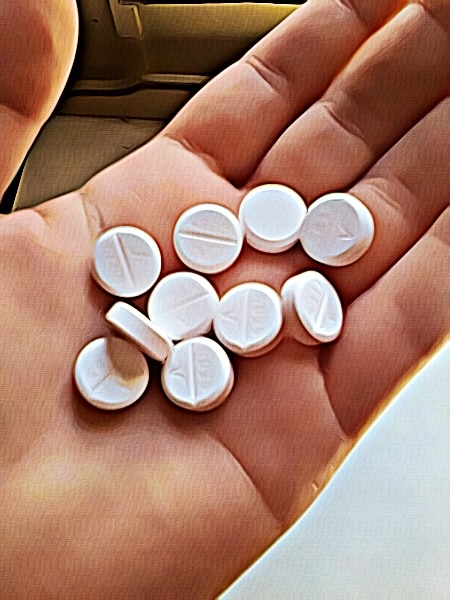Percocet is a medication containing an opioid pain reliever (oxycodone) and a non-opioid pain reliever (acetaminophen). It is prescribed to aid in pain mitigation, whether moderate or severe. It works by changing how your body processes and responds to pain. For instance, oxycodone reduces the sensation of pain by binding to pain receptors in the brain, while acetaminophen stops the production of pain-causing prostaglandins. When consumed, it decreases your level of consciousness and ability to be fully aware of your surroundings.
Although Percocet is an effective pain reliever, it is highly addictive because of its narcotic components. It is registered as a Schedule II drug, meaning it has a high potential for abuse and prescription drug addiction. It may also induce severe side effects. To address these issues, Endo Pharmaceuticals, the drug’s manufacturer, states in the prescribing information that it is usually reserved for those who tolerate other opioids or those who haven’t bought pain relief from other sources.
To learn more about how Percocet can negatively impact your well-being in the long run, use this article as your guide.
What Are the Negative Side Effects of Percocet?
Percocet can cause short-term and long-term side effects even when used under a doctor’s supervision, so make sure to be careful when taking it. Some mild side effects will eventually go away on their own after several days. While it is rare, you can get a very serious allergic reaction to this drug. However, you should get medical help immediately if you notice any symptoms of a serious allergic reaction, like itching, rash, trouble breathing, or severe dizziness.
On the other hand, serious side effects may occur in several instances, indicating that you are experiencing an allergic reaction to the medication. When this happens, you have to stop taking the medication and seek prompt medical attention immediately. Consider the following list for for further reference:
- Mild Side Effects
- Blurred vision
- Dizziness
- Dry mouth
- Nausea
- Serious Side Effects
- Anxiety, agitation, or nervousness
- Chest pain
- Confusion
- Depression
- Extreme fatigue
- Feeling lightheaded or fainting
- Fever
- Gastrointestinal problems
- Diarrhea
- Nausea
- Vomiting
- Loss of appetite
- Hallucinations
- Hypotension or hypertension
- Hypothermia
- Increased thirst
- Insomnia
- Jaundice
- Problems with urination
- Seizures
- Shallow breathing
- Slowed heartbeat
- Unusual thoughts or behavior
- Visual disturbances
Am I at Risk of Experiencing These Negative Side Effects?
Some people are more at risk of experiencing negative side effects from Percocet. You can be one of them if you take too much acetaminophen, struggle with an alcohol use disorder, or combine the medication use with alcohol. The acetaminophen component of the drug can put too much stress on your liver and even lead to long-term damage or failure.
Those who have an increased risk for respiratory depression when taking Percocet are those with asthma, chronic obstructive pulmonary disorders, or respiratory impairments, elderly individuals, patients with head injuries, and debilitated individuals. If you are a mother who uses the medication during your first two months of pregnancy, your baby can have an increased risk of congenital disabilities.

What Happens When I Take Percocet With Alcohol?
When multiple drugs interact, they can cause severe unexpected health issues immediately. Since Percocet already has more than one substance, oxycodone, and acetaminophen, you have to be extremely careful of taking other substances.
Oxycodone interacts with alcohol and other drugs and slows down your health functions. Acetaminophen targets your liver and can cause serious damage. When left untreated, an overdose of acetaminophen can lead to liver failure and even death in a few days. Therefore, you need to consult your doctor before consuming other medications—even over-the-counter ones—to avoid risking your health.
How Can I Get Addicted to Percocet?
People who take Percocet without proper medical guidance are prone to misusing it. It’s because it can produce a sense of pleasure and euphoria, which targets the brain. In effect, it makes your body respond in the same way as illicit opioids, like heroin.
You can also develop tolerance to Percocet quickly, so you tend to take increasingly higher doses to feel the same effects you had with lower doses. Soon enough, you will become physically dependent on it, until you become an addict. If you feel this way, seek professional help immediately.
What Are the Signs of Percocet Abuse?
The side effects of Percocet can be experienced even when it is correctly used, but the risks of health effects increase when it gets abused. Here are some signs of abuse of this medication:
- An inability to stop using the drug
- Confusion
- Disengaging in normal activities just to use Percocet
- Excessive sweating
- Feeling like Percocet is necessary to perform everyday activities
- Headaches
- Increased tolerance
- Isolation and mood changes
- Obsessive preoccupation with the drug
- Sexual dysfunction
- Sleepiness
- Using the drug to relieve withdrawal symptoms
- Withdrawn behavior
What Happens When I Immediately Stop Taking Percocet?
You can experience withdrawal syndrome when you immediately stop taking Percocet after using it for a long time. The syndrome of oxycodone is similar to that of morphine. Here are some of the withdrawal symptoms that you should watch out for:
- Yawning
- Anxiety
- Increased heart rate and blood pressure
- Restlessness
- Nervousness
- Muscle aches
- Tremor
- Irritability
- Chills alternating with hot flashes
- Salivation
- Anorexia
- Severe sneezing
- Dilated pupils
- Nausea
- Vomiting
- Abdominal cramps
- Diarrhea
- Insomnia
- Weakness
- Depression
Am I At Risk of Overdosing on Percocet?
Percocet can cause overdose, and its amount that causes this problem varies from one person to another, depending on their body chemistry. It all depends on how and why you use it, but you are likely to overdose on the drug if you do these actions of drug abuse because you are put at greater risk for dependence:
- Crush, chew, snort, or inject the medication
- Use Percocet with other medicines or alcohol
- Take Percocet without a prescription
- Take Percocet in larger quantities than prescribed
- Take Percocet more frequently than prescribed
What Are the Signs of Percocet Overdose?
Many people taking Percocet are rushed to the emergency room due to nonmedical use of opioids, while others were also admitted to detox centers for opioid withdrawal due to addiction. Some even die due to opioid overdose.
If you are taking this medication and are concerned about overdose, pay attention to symptoms. Some primary signs of Percocet overdose are pinpoint pupils, respiratory depression, and unconsciousness. You should also call for immediate help if you are having trouble breathing after taking the drug. This way, you can end further risk and increase your chances of surviving an overdose.
What Is the Proper Treatment for Percocet Overdose?
An overdose with Percocet is a potentially lethal polydrug overdose. It means seeking a poison control center is advisable. Some required treatment includes support of cardiorespiratory function and measures to reduce drug absorption. Other supportive measures that can be used are oxygen, intravenous fluids, vasopressors, and assisted or controlled ventilation.
Conclusion
Percocet is a prescription pain medication, but it is one of the most commonly abused drugs. In fact, the National Institute on Drug Abuse (NIDA) reported that more than two million in the US suffered from drug-related substance use disorder. To reduce your drug misuse and abuse risk when you are prescribed this medication by your doctor, remember all the important information in this guide. Don’t also hesitate to reach out to local addiction centers near you.
Sources:
https://www.drugabuse.gov/about-nida/legislative-activities/testimony-to-congress

